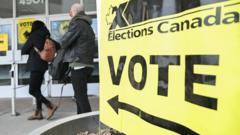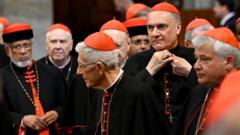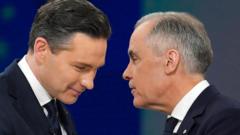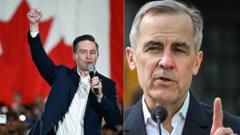JD Vance’s recent speech in Munich is characterized by a defense of far-right ideologies and a call for openness towards alternative political voices, showcasing a growing global alignment among populist movements.
Vance Expands Far-Right Support in Europe During Munich Speech

Vance Expands Far-Right Support in Europe During Munich Speech
Vice President JD Vance's Munich address mirrors U.S. political themes, advocating for conservative views and challenging established parties in Europe.
In a striking display of global political alignment, Vice President JD Vance delivered a speech in Munich that echoed the provocative themes he has long championed in the United States. His message, which included a tacit endorsement of far-right parties, underlined the increasing resonance of hard-line immigration policies across diverse populist movements worldwide.
During his Friday address, Vance advocated for European leaders to expand their tolerance for alternative political perspectives, emphasizing the necessity of free expression. While he refrained from explicitly naming the far-right Alternative for Germany (AfD), his remarks clearly targeted the party, which has gained traction amidst rising dissent over immigration policies and economic concerns. The AfD, despite being flagged as extremist by German intelligence, is poised for a significant performance in Germany's looming parliamentary elections, fueled by public disillusionment with mainstream politics.
Mr. Vance criticized German party leaders’ strategy of erecting “firewalls” intended to contain the AfD's influence, arguing that such exclusionary tactics stifle voter representation. This comment directly echoed sentiments within U.S. conservative circles, where concerns mount regarding the vocal suppression of conservative viewpoints.
The Vice President's itinerary included a meeting with the AfD's leader, Alice Weidel, thereby solidifying his alignment with the party’s agenda. Vance's approach hints at a broader strategy to foster connections among like-minded political entities on both sides of the Atlantic, using shared themes of anti-immigration sentiment and free speech to unify varying factions within global populism. His visit to the Dachau Concentration Camp Memorial Site with the second lady, Usha Vance, juxtaposed the visit’s somber nature against the backdrop of his controversial political support, raising questions about the implications of fostering extremist ideologies in democratic discourse.
By engaging directly with far-right movements, Vance appears to be laying the groundwork for a more cohesive populist front that could influence both European and American political landscapes, amid ongoing debates surrounding immigration policy and the protection of free speech.




















